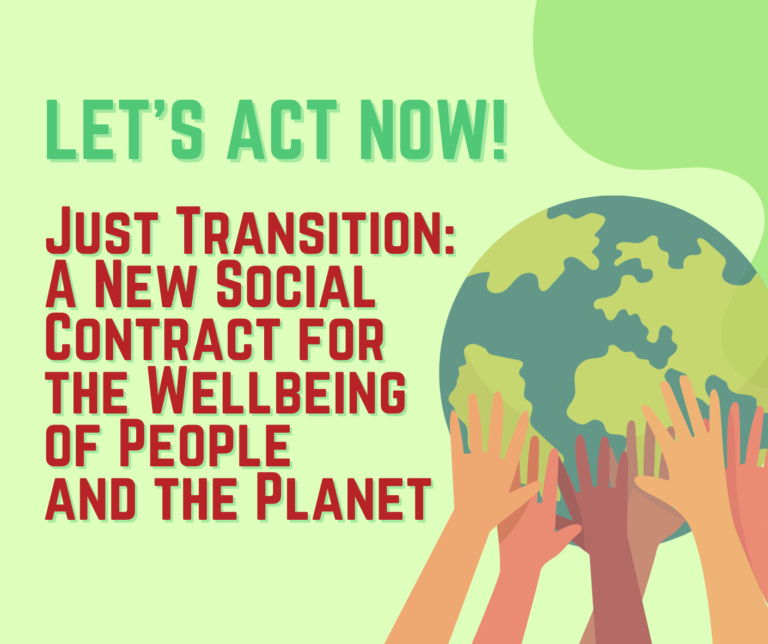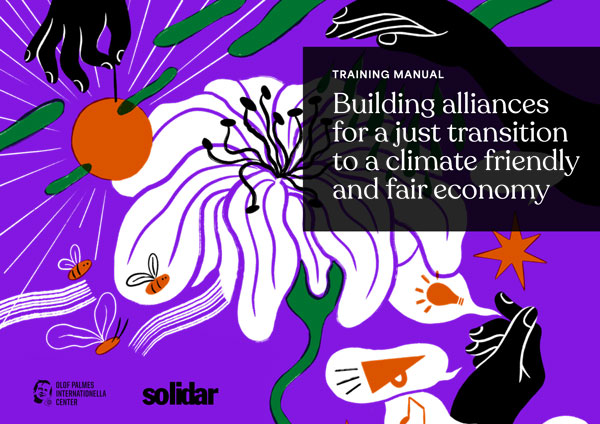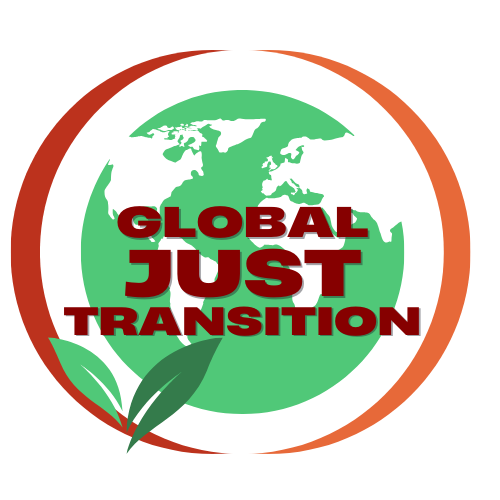Just Transition takes center stage at “Stockholm+50” UN Environmental Conference
June 07 2022
SOLIDAR and its member organisation Olof Palme International Center, as well as partners such as FEPS and ITUC, held a side event titled “Just Transition: The path to a healthy planet for the prosperity of all” in the framework of the UN Conference Stockholm+50, a major international environmental meeting taking place in Stockholm on 2 and 3 June 2022.
Andreas Dimmelmeier, Policy Analyst on Climate and Environment at FEPS, opened the side event by defining Just Transition as a broad issue that goes beyond environmental politics and concerns questions of values, rights and political power. A Just Transition is a framework that allows trade unions and communities to co-author and own solutions to issues, rather than simply being at the receiving end of decisions by national ministries or high-level conferences. He stressed, however, that it is not enough to bring all stakeholders together in one room, as there are very different interests and conflicts of power. Some people and corporations benefit from extractive capitalism, colonialism, gender discrimination and workers’ exploitation, so there also needs to be a shift in agency.
Samantha Smith, Director of the Just Transition Centre, an initiative of the International Trade Union Confederation (ITUC), described a Just Transition as a process negotiated in the ILO and aimed at leading us to a world where everyone has decent work and social protection, all work is environmentally sustainable, and poverty is eradicated. A Just Transition has two key characteristics: it is based on social dialogue among workers and our representatives (trade unions and organisations of informal workers), employers and sometimes governments; and it has robust and continuing stakeholder engagement. Samantha also pointed out that, in order for workers in the energy sector not to oppose the change, we must be able to show them that a job of equivalent quality is awaiting them after this transition. “If we want the trade union movement to support the change, then the new jobs must be good jobs”, she said. Moreover, most people in the world are employed informally and, over the last few decades, big changes in the means of production have generated less safe and badly paid jobs, and many people such as women and racialised communities are locked out of decent work. Therefore, we must address issues such as contractualisation, privatisation, restructuring and worsening of jobs, in order to generate a just economy, where poverty is eradicated.
Godfrey Kanyenze, Founding Director of the Labour and Economic Development Research Institute of Zimbabwe, a think tank linked to the Zimbabwe Congress of Trade Unions, called for putting values and rights at the centre of discussions and negotiations on a Just Transition towards more sustainable economies. He revealed that 89% of all jobs in Africa are informal and not decent. Therefore, it’s critical that the jobs created through the transition respect the ILO Declaration on fundamental principles and rights at work, which includes the right to decent employment, freedom of association and collective bargaining, no discrimination, no forced and child labour, and no violence and harassment at work. He concluded that such values and principles are non-negotiable and inalienable, and that a new economic system must be built around them. Alas, the current one keeps vulnerable people at the margins of the labour market, in poverty, and reduces their dignity, instead of offering opportunities in an equitable and fair manner.
Nadia April, Programme Officer working with indigenous women at the Women’s Leadership Center in Namibia, illustrated Just Transition as a process of radical economic, social, cultural and ideological transformation from a system based on exploitation and profit and towards economies and societies that value what matters: the health of the planet and the people. This process must acknowledge women as leaders, include their voices, and empower indigenous communities, rural farming communities, the urban poor, unemployed youth and other marginalised communities to engage in decision-making in a meaningful way. Moreover, a Just Transition is only possible if we recognise and dismantle the patriarchal socio-economic system that perpetuates discrimination, exclusion and inequality in society, and put in place a feminist revolution. Then, Nadia mentioned the Women’s Leadership Center’s campaign against oil extraction by ReconAfrica, a Canadian-based gas company, in an area of the East-Northern part of Namibia that is essential for the livelihood of indigenous people. The campaign aims to put the spotlight on the consequences of drilling in the region, including sexual violence, gender power dynamics and job creation for men only. ReconAfrica’s actions deepen the current inequalities and forms of discrimination, instead of producing a Just Transition.
In conclusion, Anna Sundström, Secretary General of the Olof Palme International Center, presented the latest study by OPC and SOLIDAR, titled “A Just Transition for the Global South”. The study outlines what comrades in trade unions and civil society in the Philippines and in South Africa see as necessary for a Just Transition, and is relevant for all who wish to support this shift globally. Anna then shared a quote by Olof Palme, Prime Minister of Sweden in the 1970s and ‘80s, who delivered a speech at the first environmental conference in Stockholm in June 1972: “I am convinced that we can find solutions, but it is absolutely necessary that we cooperate internationally. We are very much in a hurry. Solutions will require far-reaching changes in attitudes and community organisation.” Anna pointed out that, 50 years later, these changes have not taken place and that time is even more scarce. However, through international action for a Just Transition and multilateral cooperation, real change is possible.
Mikael Leyi, Secretary General of SOLIDAR, closed the event with a call for advancing social justice hand in hand, and not parallelly or separately, with climate and environment action. This includes taking the social impact of climate and environmental policies or strategies into account, strengthening social protection systems, reversing the process of neoliberal privatisations and capital accumulation, taxing wealth more effectively and leaving austerity measures behind. He concluded by encouraging all stakeholders to gather in broad alliances and coalitions for a Just Transition, along the lines of SOLIDAR’s European Alliance for a Just Transition and the upcoming Swedish Alliance for a Just Transition.
The panel discussion was moderated by Oscar Ernerot, Head of the International Department of the Swedish Trade Union Confederation (LO).
To watch a recording of the event, please click here.





